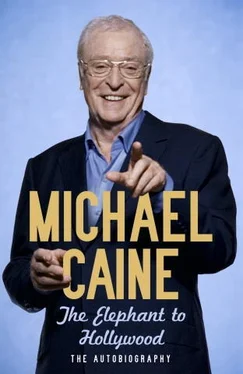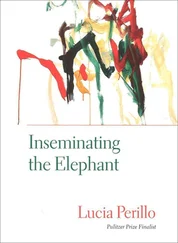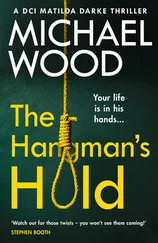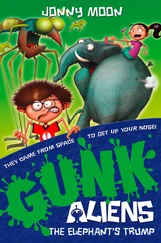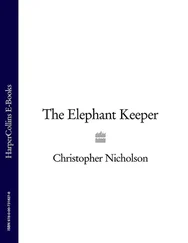Michael Caine - The Elephant to Hollywood
Здесь есть возможность читать онлайн «Michael Caine - The Elephant to Hollywood» весь текст электронной книги совершенно бесплатно (целиком полную версию без сокращений). В некоторых случаях можно слушать аудио, скачать через торрент в формате fb2 и присутствует краткое содержание. Город: London, Год выпуска: 2010, ISBN: 2010, Издательство: Hodder, Жанр: Биографии и Мемуары, на английском языке. Описание произведения, (предисловие) а так же отзывы посетителей доступны на портале библиотеки ЛибКат.
- Название:The Elephant to Hollywood
- Автор:
- Издательство:Hodder
- Жанр:
- Год:2010
- Город:London
- ISBN:978-1444700015
- Рейтинг книги:4 / 5. Голосов: 1
-
Избранное:Добавить в избранное
- Отзывы:
-
Ваша оценка:
- 80
- 1
- 2
- 3
- 4
- 5
The Elephant to Hollywood: краткое содержание, описание и аннотация
Предлагаем к чтению аннотацию, описание, краткое содержание или предисловие (зависит от того, что написал сам автор книги «The Elephant to Hollywood»). Если вы не нашли необходимую информацию о книге — напишите в комментариях, мы постараемся отыскать её.
The Elephant to Hollywood — читать онлайн бесплатно полную книгу (весь текст) целиком
Ниже представлен текст книги, разбитый по страницам. Система сохранения места последней прочитанной страницы, позволяет с удобством читать онлайн бесплатно книгу «The Elephant to Hollywood», без необходимости каждый раз заново искать на чём Вы остановились. Поставьте закладку, и сможете в любой момент перейти на страницу, на которой закончили чтение.
Интервал:
Закладка:
Everywhere I went in Vietnam it was still possible to find someone who knew something about The Quiet American or about Graham Greene himself. One old American reporter – a Graham Greene character if ever there was one – told me that the reason Greene had written the book in the first place was because he had come across a story of two American women who had been killed in the North and their bodies shipped back without a mention. Greene went to Hanoi to investigate. The reporter didn’t know what he had found – but he did know that Greene started writing The Quiet American on his journey back to Saigon.
We received fantastic co-operation and help from the Vietnamese authorities during filming. At a key point in the movie, which is based on a real incident, there is a huge bomb explosion and the city council allowed us to close streets all around the city centre so we could recreate this. I think they did it because the book and Greene himself were seen as anti-American – although the Communists were blamed for the explosion at the time, Greene suspected that the bomb had been planted by the Americans and he is likely to have been right. The Americans ignored his advice (which made him very unpopular at the time), which was to keep clear of a war the French were already losing – although I think they would take a different view in hindsight. I had served in Korea alongside Americans and at the time, I fully expected the British to go into Vietnam with them. I was very surprised when we didn’t. It was only when I was in Saigon for this film, and realised that Greene was in British Intelligence in Sierra Leone during the Second World War, that I put two and two together: maybe he advised the British government against it. Perhaps he really was ‘Our Man’ in Saigon.
Letting off our explosion in the square caused some considerable excitement. First of all we had a very special secret visitor on the set: a tiny Vietnamese man who turned out to be General Giap, the general in charge of North Vietnamese forces who had finally beaten the Americans. He just wanted to witness our recreation of the incident that had started the war… Then, as we worked setting up the scene, we noticed a man with a bicycle standing right next to one of the cameras and watching what was going on intently. When the explosion went off – and it was a very big one – he went nuts and started running round and screaming in Vietnamese. Our interpreters shouted translations at a surprised Philip Noyce, the director. ‘That was exactly it!’ the man was yelling, pointing to a spot about twenty yards from where the ‘bomb’ had gone off. ‘I was riding this bicycle right there – I could have been killed, but I was late for work!’ We obviously got something right…
We finally left the hustle and bustle and the three million motor scooters behind and while the unit prepared to move location, we escaped to the paradise of the Furama Hotel and spa on China Beach, near Da Nang. It was the first free time I had had – I have never worked so hard before or since on a movie – and we were determined to make the most of it. It was also a chance to see the traditional Vietnam – and we weren’t disappointed. One night, after a night shoot, we were coming back to the hotel when we suddenly came across a massive vegetable market sprawled across the road for about a quarter of a mile. The car screeched to a halt and we slowly picked our way through the stalls as ladies moved their mats and baskets of fruit and vegetables out of the way. When we finally made it safely to the other side without killing any of the vendors or squashing so much as an onion, I asked our driver, who was a local man, what on earth they were doing holding a market in the middle of the road anyway. He shrugged. ‘They were there first,’ he said. ‘They have been there for a thousand years and weren’t going to move, so when they built the road right through the middle of the market they were prepared to change the time of the market to night time when there is less traffic, but they refused to budge.’ That’s what I call tradition!
From there we moved on to the old Communist capital, Hanoi. We encountered the same motor scooters and the same noise – although there didn’t seem to be any Buddhists to help us cross the streets there. In fact the whole place and the people we met seemed to be much tougher and I could understand how these people had refused to be beaten by the Americans. Vietnam seemed to me to be almost three nations: the southerners were like the Italians with their great love of life; the ones in the middle were a bit like the Belgians: just anxious to get on with everything quietly and hoping their bigger neighbours would leave them alone; and the northerners were like the Germans – tough, efficient and always on time (Churchill was once asked if the Blitz on London had taught him anything and he said yes, it had – the Germans were punctual!).
There were signs everywhere in Hanoi of the monotonous lives that the Vietnamese had to put up with under the Communist regime. We were driving back late one night through the city and as we passed house after tiny house, all with their doors and windows open and all with the television on, it dawned on me that they were all watching the same programme. No wonder – when I asked the driver how many stations they had, the answer was ‘One’. They were also subjected to a relentless diet of propaganda. In an overnight stay in a hotel outside Hanoi, I was woken up at dawn by loudspeakers all over the town blaring martial music at maximum volume before a man came on and began to exhort his comrades to get up and produce even more than they had the day before. It was too noisy to stay in bed, so I got up and went for a walk and by chance passed a small studio with its doors open. Curious, I peeped inside and there was the actual man making the broadcast, screaming his head off. I had nothing to lose (I’d already lost enough sleep!) and I stepped inside and shouted at him, ‘shut the fuck up!’. He just smiled and waved and carried on…
Eventually it was time to move on from Vietnam and shoot the studio interior sequences, which we did in Sydney. I think it’s one of the most beautiful cities in the world and I love the place – if it were a couple of thousand miles closer, we’d all be living there… It was a relief to get there after Vietnam, and our Australian crew – who were great – were especially happy to be back on home ground.
I turned up to make-up on the first day of shooting feeling very relaxed and happy with life. I sat down and as the make-up lady was getting to work she said to me very casually, ‘You do know you’ve got skin cancer, don’t you?’ I shot out of that chair at about a hundred miles an hour. ‘Skin cancer?’ I said. ‘Where?’ She pointed to a mark on my face that I had thought was just a razor rash. I didn’t know what to think, but I was encouraged by how unperturbed she seemed to be – I mean, I know Australians are laid back, but she was a genius. ‘No worries,’ she said. ‘It’s very common in Australia – and most of them aren’t serious.’ For obvious reasons I couldn’t have the operation while we were filming, so I made an appointment with Sydney’s top skin cancer specialist, who scheduled surgery for the very second we finished the shoot, and did my best to put it out of my mind and just get on with the job.
We were operating a more relaxed filming schedule in Sydney, so there was a bit of time to see the sights. We had a fabulous apartment right on the harbour with spectacular views, although the most spectacular of all wasn’t there when we went to bed one evening, but in the morning when we woke up it had appeared during the night – there, outside our window, was the QE2. We were invited on board for a tour one afternoon and were shown around by the captain. It is a beautiful and remarkable ship (it was retired in 2008 and is now awaiting refurbishment as a floating hotel) although it has its stranger aspects. We were just going past what was obviously the most luxurious apartment on board when the captain put his finger to his lips. ‘Sssssh,’ he said. ‘Our most important guests are probably asleep.’ It turned out that this couple had actually lived on the ship for several years and travelled all round the world without ever leaving the ship…
Читать дальшеИнтервал:
Закладка:
Похожие книги на «The Elephant to Hollywood»
Представляем Вашему вниманию похожие книги на «The Elephant to Hollywood» списком для выбора. Мы отобрали схожую по названию и смыслу литературу в надежде предоставить читателям больше вариантов отыскать новые, интересные, ещё непрочитанные произведения.
Обсуждение, отзывы о книге «The Elephant to Hollywood» и просто собственные мнения читателей. Оставьте ваши комментарии, напишите, что Вы думаете о произведении, его смысле или главных героях. Укажите что конкретно понравилось, а что нет, и почему Вы так считаете.
